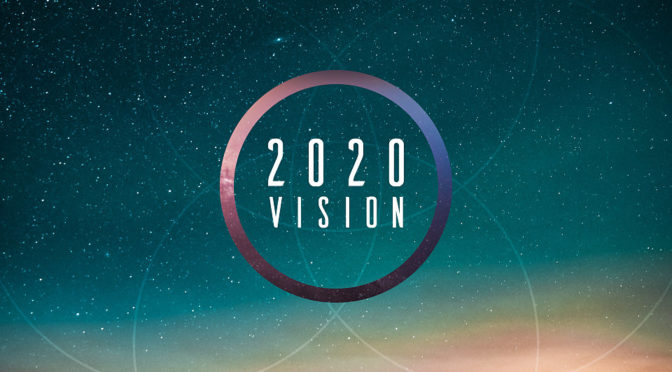Another year and another Oscars ceremony in the books. I have a love-hate relationship with the Oscars. I love film for its power to communicate ideas and transport viewers to distant worlds and times. This year, the Academy rewarded a well-crafted, insightful, and entertaining film, Parasite, with Best Picture, Best International Film, Best Original Screenplay, and gave its Director Bong Joon Ho the Best Director award. As a subtitled, South Korean film, this was a huge step in normalizing and legitimizing world cinema because it is the first time ever that a non-English speaking film has taken home the highest award of the night.
However, the Academy Awards ceremony has become known, especially by Christians, as a place of rampant liberal politics. Because of this, most Christians stay away, not just from Oscar night, but from Hollywood in general. In my opinion, this is a mistake. To look at Hollywood as if it was a place that is beyond the reach of God’s grace is to put God in a box. What would it look like for Christians to be salt and light in Hollywood?
Art Imitates Life

I take the Oscars ceremony as an opportunity to look back on a very busy year. On the world’s stage, we saw protests and violence in Hong Kong, Algeria, India, Nicaragua, and others. Both the Amazon and Australia were on fire. Brexit stretched on, while China and Iran had conflicts with the U.S. over trade and nuclear weapons respectively. Speaking of the U.S. there was obviously the circus that was the House of Representative’s impeachment of President Trump.
Film is a fascinating storytelling medium with the ability to speak to the trends of the day in unexpected ways. Consider two 2019 releases. Captain Marvel is a veiled commentary on immigration policy and Greta Gerwig transformed Little Women into a feminist manifesto instead of a timeless story of faith and family.
The liberal politicization of Hollywood has turned many Christians off to film in general. This agenda is on full display at the Oscars. For instance, Brad Pitt used his acceptance speech for Best Supporting Actor in Once Upon a Time… in Hollywood to comment on the Senate’s acquittal of President Trump.
Ego and the Greatest Snub
But Joaquin Phoenix one-upped everyone in the room when he equated gender-equality and racism with animal rights as he encouraged everyone towards his vegan agenda and indicted everyone for their egocentric worldview which leads to inequality. While Mr. Phoenix and I would disagree about the rights of a cow when compared to the rights of indigenous peoples, I would completely agree with his assessment of egoism.
I’m happy that today’s films elevate the voices of the marginalized. God calls his people to fight for justice for the oppressed. But the biggest snub of this year’s Oscar ceremony was not the fact that there were no female directors or that The Irishman went 0 for 10. This one is even more glaring. As I listened to the acceptance speeches, I don’t think I heard a single mention of God. No word of thanks or praise. Of course, I may have missed something, but even in the official Oscars Acceptance Speech Database (Yes, that is a real thing), the number of mentions of God has been steadily dropping over the years.
The most recent mention of God that wasn’t a vain exclamation was back in 2018. Regina King said, “God is good all the time,” in her win for If Beale Street Could Talk. In the most recent actual expression of thanks to God, Common said, ” First, I would like to thank God that lives in us all” when he accepted the award for Best Song for “Glory” from Selma in 2014.
The Absence of Light
How did things get so dark? It’s a picture of Romans 1:21, “For although they knew God, they neither glorified him as God nor gave thanks to him, but their thinking became futile and their foolish hearts were darkened.” Do I say this with my nose held high in the air as I condemn those sinful Hollywood heathens? Of course not. We are no better. All people have sinned and bring shame on the glory of God’s image in them. In fact, much of the darkness prevalent in Hollywood is overwhelming because of the absence of the light that should emanate from the lives of believers.

Christians should be different. Does light have any fellowship with darkness? Does saltwater and freshwater come from the same spring? Of course not. But at the same time, we are not called to exit from culture and cloister ourselves away. Light should be put on a lampstand and salt should be used to preserve, transform, and flavor. Christians lose their identity in Christ and are freed to take up the cause of others. They are freed to lose their life for the cause of the gospel of Christ. This means engagement with culture.
Creators
Engagement can look many different ways for different Christians. Maybe you are called to create art that influences culture by showing God’s transformation to a watching world. Think of a movie like The Blind Side that doesn’t have any overt Gospel message but shows what a selfless, other-centric, God-glorifying life looks like. More creators need to step up to bat and more churches need to support their creative efforts.
Redeemers
Maybe you will engage with culture by finding the redeeming aspects of culture and calling attention to them. This is the affirmation that all truth is God’s truth and when the culture gets it right (even with the wrong motives or worldview) we need to be ready to cheer on the truth in those common areas of human flourishing. This comes through in a film like Spotlight that reveals corruption and evil that people inside and outside of the church should condemn. Believers need to respond to these films in positive ways to show that our faith is about more than believing some platitudes about Jesus.
Prophets
Finally, we need those who will stand in the gap and engage with culture by speaking the truth in love. Paul walked through the city of Athens and drew attention to their great religiosity, though it was misguided and twisted. He used the words of their own poets to show them a better way in Jesus Christ. I try to do this. For instance, in my recent article about 1917, I looked at the darkness of war and the way that all people reflect on their mortality in the face of danger. I also showed the light and freedom possible in a life spent in the cause of Christ. My hope is that someone may read or hear my words and would see that Jesus is infinitely better than anything else in our finite lives.
I hope you’ll think about how you can engage with the culture around you. If Christians are to be identified with Christ, we must do more of what he did. That means spending more time doing life with people the way Jesus did. Granted, this might mean being accused of the things that he was accused of, but I’m willing to endure that for some to see Jesus as I have seen him.
Maybe Hollywood is too far gone for my prayers and words to have any effect, but I worship a Savior who knew no limits to the love he would show to snatch men and women from hell and bring them back into right relationship with his Father. We have been given this same ministry of reconciliation, and if we pull out of the conversation and don’t shine our light, then we are the ones truly responsible for the darkness.


